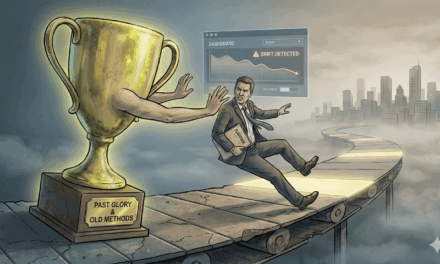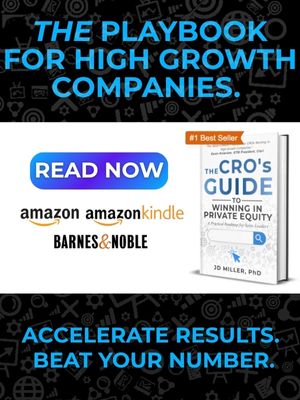
Stop Selling. Start Guiding.

There’s a shift happening in the world of sales. Prospects are no longer impressed by slick pitches or pressure tactics. In fact, many are actively turned off by the hard sell. What they want and what they expect is guidance, insight, and a partner who understands their challenges.
That’s where Customer Experience (CX) comes in.
Today’s best-performing sales teams don’t see themselves as closers. They see themselves as customer guides, helping prospects navigate their problems, understand their options, and make confident decisions. They stop selling and start serving. And in doing so, they close more deals, faster, and with greater long-term loyalty.
If you want to build a sales engine that thrives in the trust economy, CX-first selling is your competitive advantage.
Why Traditional Sales Approaches Are Failing
Customers are smarter, savvier, and more sceptical than ever. According to Gartner, 83% of B2B buyers prefer to self-educate rather than speak with a salesperson. So when they do engage, they’re already halfway down the decision-making path.
The old playbook of demos and discounts just doesn’t cut it anymore.
Here’s why traditional sales falls short:
- It focuses on the product, not the person
- It tries to persuade instead of understand
- It treats closing as the goal, rather than the beginning
Buyers don’t want to be pushed. They want to be guided.
The CX-First Sales Mindset
A CX-first sales team flips the focus from “How do we get them to say yes?” to “How do we make this the best decision they’ve ever made?”
It starts with deep listening. Great CX begins with empathy. CX-first sellers ask better questions, not just about budget and timelines, but about:
- What keeps you up at night?
- What has worked and failed for you before?
- What would success feel like three months after buying?
They listen to understand, not to respond. The goal is to map the customer’s emotional and operational landscape before offering a solution.
In a CX-first model, the salesperson is a consultant, not a closer. It positions the seller as a trusted advisor. That means:
- Offering insights before asking for commitment
- Sharing relevant stories from similar clients
- Recommending other solutions if your own isn’t the best fit
This creates credibility, not just conversion. And it opens the door for future business, even if the answer is “not now.”
Buyers remember who helped – not just who sold.
When your CX is strong, your sales experience feels safe. Prospects feel in control, informed, and empowered.
That includes:
- Clear onboarding plans pre-sale
- Straight talk about limitations
- Collaborative goal-setting and next steps
Instead of pushing, CX-first teams pull people in by creating trust and clarity.
According to Edelman’s Trust Barometer, 88% of consumers say trust is a deal-breaker. No trust? No sale.
CX-First Sales in Action: The Results Speak
Companies that adopt this approach are seeing big wins:
- Higher win rates. Buyers respond better to partners than to pitches.
- Shorter sales cycles. When buyers feel confident, they decide faster.
- Lower churn. Customers who were guided with care are more committed post-sale.
- More referrals. People share experiences that felt good, not just outcomes that worked.
It’s not about selling less. It’s about selling smarter.
How to Make the Shift to CX-First Sales
Ready to transform your sales process from transactional to transformational? Here’s where to begin:
- Redefine Success Metrics
Instead of measuring just deals closed, also measure:
- Customer satisfaction with the buying experience
- Time to first value post-sale
- Deal quality (fit, longevity, expansion potential)
This encourages long-term thinking and real alignment with CX goals.
- Train Sales in Empathy and Customer Journey Mapping
Most sales training is product-heavy and technique-driven. Flip that.
Train teams to:
- Recognise customer emotions
- Identify friction points in the journey
- Respond in a human, value-led way
Roleplay real-world objections with a CX lens: What does this concern really tell us about the customer’s world?
- Co-Create With CX and Customer Success
Break the silos.
- Involve CX in sales kickoff meetings
- Share feedback from churned customers
- Invite customer success teams into late-stage deals
This collaboration ensures customers feel supported from the very first touchpoint.
Final Thought: Guidance is the New Growth Strategy
In a world overflowing with information and choices, customers aren’t looking for sales reps.
They’re looking for guides.
CX-first sales teams win more deals because they create an experience that feels human, supportive, and valuable – before the contract is ever signed.
When your sales process feels like the first step in a great customer journey and not just a transaction, you don’t just close more. You open the door to loyalty, referrals, and long-term growth.



































